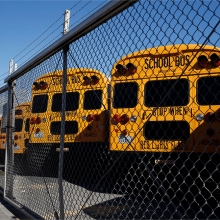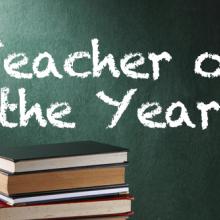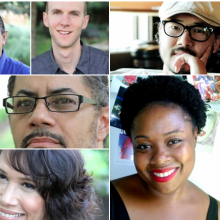teachers
This Tuesday marked back to school day for my two boys, who are entering fourth and sixth grade at an Episcopal school that welcomes students of all faiths. The annual rite — which for our family always seems to involve the Mission: Impossible-style task, led by my wife, of getting all the right books and school supplies in time — left me with mixed feelings, which I suspect many fellow parents share. On one hand, I am excited for all the new school year offers my kids: new teachers, new friends, a new season of athletics, and all the other extracurricular activities that bring my kids so much joy. On the other, I feel the weight of a mounting crisis in our nation’s education system, especially in public schools, where the pandemic revealed such deep and long-standing racial inequities.
Editor’s note: On Sunday, the Texas Supreme Court temporarily blocked mask mandates in two of the state’s biggest counties, upholding Gov. Gregg Abbott’s executive order prohibiting them. As school begins across the country, some districts in Texas, Florida, and elsewhere are defying mask mandate bans, in some cases risking school funding. Teachers and administrators are preparing for a year of unknowns as the Delta variant rages among the unvaccinated.
Tammy Stallcup has been teaching junior high and middle school choir for 34 years in Texas public schools, primarily in Odessa. Now teaching near Fort Worth, Texas, she begins her 35th year this fall, and wrote this prayer for teachers.
According to National Education Association estimates for 2016, Oklahoma ranked 48th, followed by Mississippi at 49 and South Dakota at 50, in terms of average U.S. classroom teacher salary.
A high school shooting. 17 dead.
Angry white man. Assault rifle.
Broken community. Candle-lit vigils.
Grief. Rage. Hearts. Crosses.
Over the past week — after listening sessions with the student survivors of the Parkland shooting and parents who have lost children, as well as state and local leaders — the most repeated solution to the epidemic of gun violence that President Donald Trump has offered is arming some percentage of our school’s teachers.
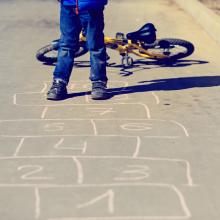
Image via Nadezhda1906/Shutterstock.com
The couple has found that part of their calling in these schools is not just to the children, but also to the teachers who serve those children. Cheryl has taken to performing regular acts of kindness for the teachers — showing up in the teachers’ lounge with a plate of cookies, or stopping by the main office to give a hug to the administrator in charge of discipline.
“I tell her, ‘I’m sure you’ve had a rough day today. Can I give you a hug?’ I just never knew it would make such a difference. [They] feel so supported,” said Cheryl.

Image via Nadezhda1906/Shutterstock
Robert Putnam’s new book, Our Kids: The Crisis in the American Dream, laments the decline in social capital (how we are connected to others and care for them) with its devastating impact on poor children today. Past generations of poor children often had more opportunities because they benefited from connections with churches, teachers, coaches, and other mentors who supported them. Putnam, a respected Harvard sociologist, documents how too many children are missing these caring adults in their lives today. He offers "purple solutions" to the growing "opportunity gap" and poverty that includes support by all for public schools.
Many churches witness to their concern for school children with a "Blessing of the Backpacks" service. Some churches invite the children in the congregation to bring their own backpacks for a blessing before a new school year begins. This is a way to acknowledge that school is a common yet very important part of our children’s lives. Other churches collect school supplies for children in need, assemble the donated supplies in backpacks, and bring them to church for a blessing in worship.
The tune of the following new hymn is the same Gaelic melody used for "Morning Has Broken," and it seems appropriate to sing a joyful "morning" tune as children, parents, and teachers start to get up earlier in the mornings to head off to school.
Recent attacks by Somalia’s al-Shabab Muslim militant group have forced the closure of dozens of schools in Kenya’s north, as Christian teachers refuse to work because of security fears.
The crisis follows the massacre of 148 Christian students at the Garissa University College in April. The predominantly Muslim region relies on Christian teachers for its schools, but those teachers have been singled out by the terrorist group because of their faith.
“Teachers left and did not report back, so some schools have since closed down,” said Roman Catholic Joseph Alessandro of the Garissa Diocese.
Memphis Teacher Residency believes that "urban education is the single greatest social justice and civil rights issue in America today."
They taught English, gym, music, and fifth grade, and are typically described as “beloved” by their students.
But that didn’t stop the Catholic schools where they worked from firing these teachers for their same-sex relationships, or, in one woman’s case, for admitting that she privately disagreed with church teaching on gay marriage.
A recent spate of sackings at Catholic institutions — about eight in the past two years — is wrenching for dioceses and Catholic schools, where some deem these decisions required and righteous, and others see them as unnecessary and prejudicial.
As a teacher, I tend to change the channel or radio station when the news turns to issues related to schooling and education. It is difficult to listen to people discuss aspects of my daily experience as if they were a part of it. When a news story involves an act of violence in a school or a natural disaster wreaking devastation on children and school employees, I am almost less likely to listen. It is too painful to think about what that would be like for me, my colleagues, and most importantly, my students.
When major news networks began playing a recording of suburban Atlanta school employee Antoinette Tuff’s 911 call reporting a shooter in her school’s building on Tuesday, I almost turned off the TV. Then, I heard Tuff’s calm voice interacting with the shooter as though as he was any distraught child in the office needing extra attention. I started to listen.
The announcement was broadcast at the end of the day over the school’s public address system.
"Our Teacher of the Year for 2013-2014 is ... Mr. Barton. Congratulations!"
I walked out into the third-grade hallway where students were lined up for dismissal. Little hands reached up and patted me on the shoulder. Small voices joined together and called out, "We're proud of you, Mr. Barton!" Alondra, a quiet student, pulled me close and said, "Thank you for being my reading teacher." I was honored and humbled.
As I walked back into my classroom, I reflected over my five years teaching at this Title I elementary school. "Who am I, what have I done, to become Teacher of the Year?" I asked myself.
Today, Sojourners is launching a new project called Emerging Voices, and it’s one of the most exciting things I have been involved with for a long time. It aims to mentor, develop, and promote the most dynamic up-and-coming communicators — speakers, preachers, and teachers — who so clearly are called to lead and publicly articulate the biblical call to social justice.
The vision for this project is exciting and something to be celebrated. It also calls to mind a critical observation: Our world often wants saviors, not prophets; new messiahs, not leaders.
We want heroes with superhuman strength who save the day, not mere mortals who speak the truths we typically don’t want to hear. Even the modern day giants of social justice — Dr. Martin Luther King Jr., Dorothy Day, and Mahatma Gandhi, for example —were at best prophets, but never saviors.
It’s easy to slip into the mentality that one person, one voice will rise up in a generation, and that he or she will change the world as we know it. Perhaps we even think, “Maybe I will change the world.”
THE SO-CALLED “accountability movement” has been a bipartisan movement; virtually no one is proposing that we cut back on standardized tests. They’ve come to dominate school for children and teachers, and they’ve narrowed the curriculum. They’ve caused people to feel pressure to cheat. While standardized tests have been emphasized less in schools where children are highly affluent—those children still get an enriched curriculum—children in schools that are poor get a heavily test-prep curriculum that’s not very enticing.
At a higher level, standardized tests are at the core of the test-and-punish philosophy of No Child Left Behind (NCLB). All the punishments are based on test scores; whether it’s identifying failing schools and closing them if their scores are too low or giving teachers poor evaluations, and maybe firing them, based on student test scores—or whether it’s the very draconian ways of dealing with the bottom 5 percent of schools in the NCLB waivers and Race to the Top grants, as Education Secretary Arne Duncan proposes.
High-stakes testing is at the core of what’s wrong with where we’re headed. Because the stakes are so high, they’ve caused a narrowing of the curriculum. The tests required for NCLB are basic reading and math. They don’t test social studies or the arts. Because the scores matter so much, they’re driving policy all around it.
I'VE BEEN INVOLVED in public education for more than 15 years—as an urban public school teacher, a researcher and policy analyst, a teacher trainer, a parent, and an advocate. I never dreamed I’d live to witness such raucous and juicy debates about how to improve our nation’s lowest-performing public schools. Throughout my career, public education garnered the occasional feel-good story about a phenomenal, mythical “inner city teacher” and, more often, the litany of stories about how urban and rural schools are in complete disarray.
But during the last few years—oh my! We’ve witnessed the onslaught of message-laden documentaries such as Waiting for “Superman” and The Lottery, which are celebrated by many and derided as teacher-bashing propaganda by others. The birth of the “education reform” movement has generated such groups as Democrats for Education Reform, Students for Education Reform, and Stand For Children. Again, lauded by many, these groups are vigorously criticized by others because of the way they push against policies, structures, and institutions in public education.
Regardless of what side of the education reform debate we may choose, most Americans agree on one thing: Public schools must improve. The academic achievement gap between wealthy white students and low-income students of color must be eliminated. It’s unconscionable that 50 percent of kids growing up in poverty drop out of high school. How do we allow a system to exist where poor children in the fourth grade are already performing three grade levels behind children in wealthier neighborhoods? What future do we anticipate poor and minority children will have with these academic outcomes?
“What do you want to be when you grow-up?” is the pressure filled question that people begin asking as soon as they feel young people are old enough to answer.
From there it only gets worse. It’s a question I hated answering. Adults and media filled my mind with careers that would make me financially secure and, in their minds, 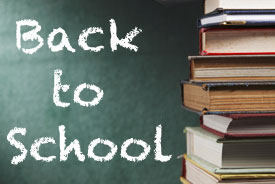 happy. So these careers filled my answers: doctor, lawyer, and pharmacist. I would be something important, and life after college would be financially easy.
happy. So these careers filled my answers: doctor, lawyer, and pharmacist. I would be something important, and life after college would be financially easy.
I babysat often through high school and remember a mom asking the dreaded questio
"Teachers are builders," said my friend. "You build safe learning environments for your students. You build safe spaces for your parents. You build knowledge and experience for yourselves. You build community with each other. You are builders."
I like her image.
This year I'm going to work on the 'building community with each other' part.
Every school day just after 2 p.m., Sandra pushes her cart into my classroom to clean the bathroom and empty the trash cans. She is the school custodian and my students love her. When students hear her squeaky wheels in the hallway outside our door, they listen for her kind giggle as she enters the room. "Ms. Sandra! Ms. Sandra! Can I help you empty the trash? Can I help you?" they yell out with their hands waving in the air.
She responds, "Jennifer, you look so cute today! How you doin' VicTOR? Francisco, baby, you look like you're doing a good job for Mr. Barton. You come on over and help me today. Anna, honey, that's okay, you can help me tomorrow." She knows all of my students by name.
30 ways to celebrate National Poetry Month, after Easter take a look at some of the sketchiest bunnies, post-apocalyptic artwork, Alec Baldwin interviews Kristen Wiig, Jimmy Fallon revisits his news anchor position, "Walden Pond" to become a digital reality, robots make furniture, and 36 big names in their humble beginnings...
